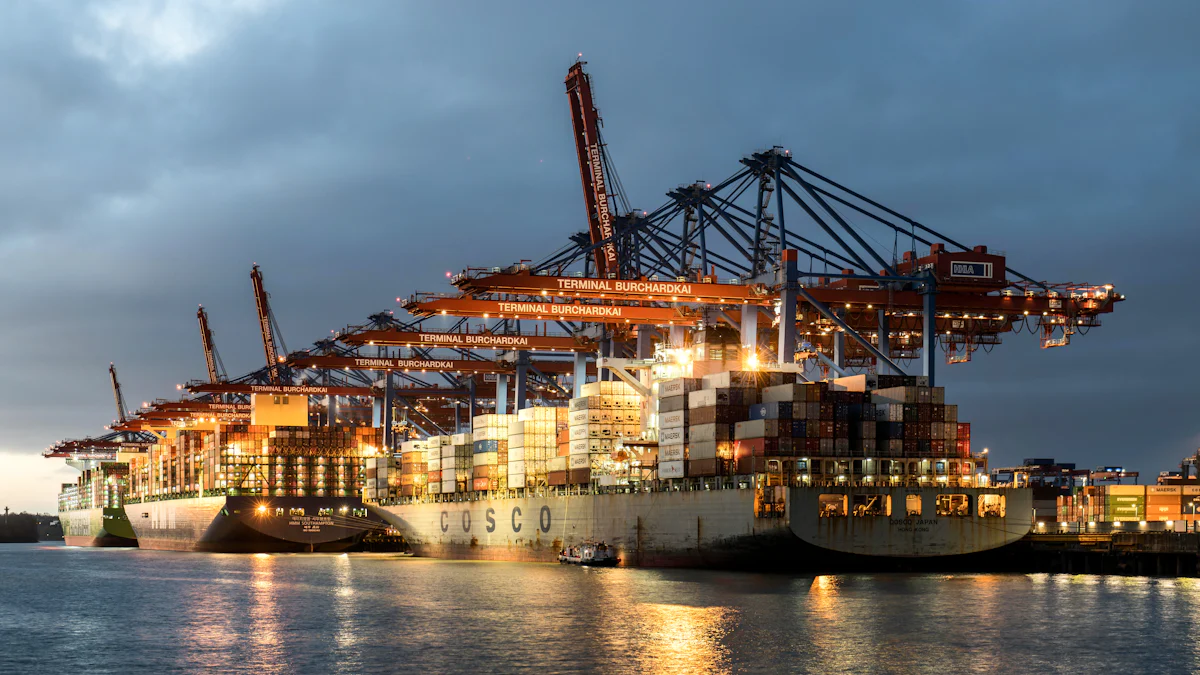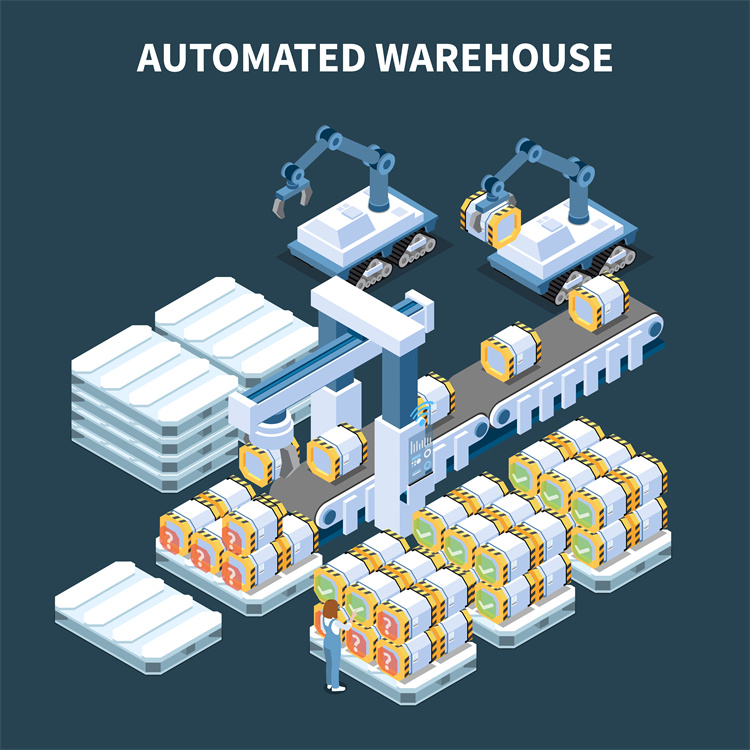Beyond the Deglobalization Narrative: Evolving Supply Chains in Japan

The global economic climate faces significant challenges. The recent corona crisis exposed vulnerabilities in supply chains worldwide. Companies must now address these disruptions. Japan plays a crucial role in global supply chains. The Indo-Pacific region, which includes Japan, contributes to 60% of the world's GDP. This region's stability is vital for the global economy. The Deglobalization Narrative emerges as countries rethink their supply chain strategies. Japan adapts to this narrative by focusing on resilience. Risks such as geopolitics and natural disasters drive these changes. Japan's approach involves diversification and innovation.
Understanding the Deglobalization Narrative
Definition and Causes
The Deglobalization Narrative represents a shift in global economic strategies. Countries are re-evaluating their supply chain dependencies. This narrative arises from both economic and political factors.
Economic Factors
Economic factors play a crucial role in shaping the Deglobalization Narrative. Many countries face challenges due to fluctuating trade tariffs and currency exchanges. These fluctuations create uncertainties in global trade. Companies seek stability by diversifying their supply chains. The quest for cost efficiency drives firms to explore local production options. The trend towards 're-globalization' may lead to increased investment opportunities in Asia, as noted in a study by Finance Asia.
Political Influences
Political influences significantly impact the Deglobalization Narrative. Geopolitical tensions expose vulnerabilities in existing supply chains. Countries become more economically dependent on states with differing political systems. This dependency leads to potential exploitation of these relationships. A study by MRI Knowledge Review highlights the growing geopolitical rivalry and its effect on supply chain vulnerabilities. Governments implement policies to protect national interests. These policies include trade restrictions and tariffs.
Global Impact
The Deglobalization Narrative affects global trade and investment patterns. The shift in strategies influences how countries engage economically.
On Trade
Trade dynamics undergo significant changes due to the Deglobalization Narrative. Countries prioritize regional trade agreements over global ones. This shift aims to reduce reliance on distant markets. Localized production gains importance as a strategy to mitigate risks. Supply chains adapt to focus on resilience and sustainability.
On Investment
Investment patterns also evolve within the Deglobalization Narrative. Companies invest in technology to enhance supply chain efficiency. Automation and digitalization become key areas of focus. The emphasis on local production leads to increased investments in domestic industries. Firms seek to balance global integration with local resilience.
Japan's Response to the Deglobalization Narrative
Supply Chain Resilience
Japan focuses on enhancing supply chain resilience in response to the Deglobalization Narrative. Companies in Japan recognize the importance of adapting to changing global dynamics. The emphasis on resilience stems from past disruptions and future uncertainties.
Diversification Strategies
Japanese companies implement diversification strategies to mitigate risks. Firms explore multiple procurement sources to reduce dependency on a single supplier. This approach minimizes the impact of geopolitical tensions and natural disasters. Companies also consider emerging markets for production bases. This strategy not only reduces disruption risks but also caters to new consumer bases. A study on global supply chain trends highlights this shift towards emerging markets.
Technological Innovations
Technological innovations play a crucial role in Japan's supply chain resilience. Automation and robotics enhance efficiency and reduce reliance on human labor. These technologies ensure continuity in operations during crises. Blockchain technology provides transparency and traceability in supply chains. This innovation builds trust among stakeholders and enhances accountability. Japan's focus on technology reflects a broader trend in adapting to the Deglobalization Narrative.
Government Policies
The Japanese government supports the Deglobalization Narrative through strategic policies. These policies aim to strengthen local industries and secure trade relationships.
Support for Local Industries
Government initiatives bolster local industries to enhance self-sufficiency. Financial incentives encourage companies to invest in domestic production. This support reduces reliance on foreign imports and strengthens the national economy. The government also invests in research and development to foster innovation. These efforts align with Japan's goal of building a resilient supply chain.
Trade Agreements
Japan actively engages in trade agreements to navigate the Deglobalization Narrative. Bilateral and regional agreements secure access to essential resources. These agreements provide stability in trade relations amidst global uncertainties. Japan prioritizes partnerships that align with its economic interests. Trade agreements serve as a tool to balance global integration with local resilience.
Innovations in Japan's Supply Chain

Technological Advancements
Automation and Robotics
Japan leads in the integration of automation and robotics within supply chains. Companies utilize advanced robotics to enhance production efficiency. Automated systems reduce labor costs and increase precision. The use of robotics minimizes human error in manufacturing processes. Japan's focus on automation aligns with the Deglobalization Narrative. Companies seek to maintain competitiveness in a changing global market. Robotics ensure continuity in operations during disruptions. The Japanese government supports technological advancements through strategic policies.
Blockchain for Transparency
Blockchain technology offers transparency in supply chain management. Companies in Japan adopt blockchain to track product origins. This technology ensures accountability and trust among stakeholders. Blockchain provides real-time data on product movement. The use of blockchain aligns with the Deglobalization Narrative. Companies aim to build resilient and transparent supply networks. Blockchain enhances traceability and reduces fraud risks. Japan's investment in blockchain reflects a commitment to innovation.
Sustainable Practices
Green Logistics
Japan prioritizes sustainable practices in supply chains. Green logistics reduce environmental impact and promote efficiency. Companies implement eco-friendly transportation methods. The use of electric vehicles and optimized routes minimizes emissions. Green logistics align with the Deglobalization Narrative. Companies focus on sustainability to meet global standards. The Japanese government encourages green initiatives through incentives. These practices contribute to a more sustainable economy.
Circular Economy Initiatives
Circular economy initiatives play a vital role in Japan's supply chain strategy. Companies focus on recycling and reusing materials. This approach reduces waste and conserves resources. Circular economy practices support the Deglobalization Narrative. Companies aim to create sustainable and resilient supply chains. The Japanese government invests in research for circular solutions. These initiatives enhance economic stability and environmental protection.
Expert Perspectives on the Deglobalization Narrative
Insights from Industry Leaders
Challenges and Opportunities
Industry leaders provide valuable insights into the challenges and opportunities presented by the Deglobalization Narrative. Sipahimalani, an expert in investment, highlights the risks and opportunities that arise from the decoupling and onshoring of global supply chains. The shift towards localized production presents both challenges and opportunities for investors in Asia. Companies face the challenge of adapting to new supply chain dynamics. The need for resilience and sustainability drives innovation. Opportunities emerge as firms explore new markets and technologies. The Deglobalization Narrative encourages companies to rethink their strategies. This shift can lead to increased investment in local industries.
Future Predictions
Experts predict significant changes in global supply chains due to the Deglobalization Narrative. Geopolitical tensions continue to expose vulnerabilities in existing supply chains. Countries become more economically dependent on states with differing political systems. This dependency creates potential for exploitation. The Deglobalization Narrative prompts countries to reconsider their supply chain strategies. Experts foresee a trend towards regional diversification and nearshoring. Companies will focus on building resilient and secure supply networks. The future of supply chains will involve balancing global integration with local resilience.
Case Studies
Successful Implementations
Several case studies illustrate successful implementations of the Deglobalization Narrative. Companies in Japan have adopted innovative strategies to enhance supply chain resilience. Automation and robotics play a crucial role in these strategies. Firms utilize advanced technologies to improve efficiency and reduce reliance on human labor. Blockchain technology provides transparency and traceability in supply chains. These innovations ensure continuity in operations during disruptions. The Deglobalization Narrative encourages companies to invest in technology and sustainability. Successful implementations demonstrate the potential for growth and stability.
Lessons Learned
Lessons learned from these case studies highlight the importance of adaptability in the Deglobalization Narrative. Companies must remain flexible in response to changing global dynamics. Diversification strategies reduce dependency on single suppliers. Emerging markets offer new opportunities for production and consumer bases. The emphasis on sustainability aligns with global standards. Companies prioritize green logistics and circular economy initiatives. These practices contribute to a more sustainable and resilient supply chain. The Deglobalization Narrative underscores the need for continuous innovation and strategic planning.
Japan's supply chain innovations highlight resilience and adaptability in a deglobalized world. The Indo-Pacific region, with Japan at its core, stabilizes the global economy through timely measures. Japan's focus on diversification and technology mitigates risks from geopolitical tensions and natural disasters. The emphasis on automation and blockchain enhances efficiency and transparency. Sustainable practices like green logistics and circular economy initiatives align with global standards. Japan's strategic approach ensures a robust supply chain, fostering economic stability and growth. Industry leaders anticipate continued cooperation to deepen supply chain resilience.
See Also
Overcoming Globalization's Supply Chain Expansion Hurdles
Transforming Transportation: Supply Chain Innovation's Influence
Future Logistics Revolution: AI in Supply Chain
Boosting Logistics: Cloud Solutions for Supply Chain Improvement
Unveiling Supply Chain Revolution through Robotics Exploration
